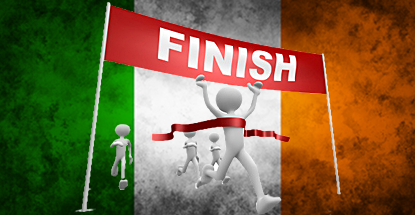 Ireland’s proposed online betting tax appears to be finally making progress toward becoming law, four years after it was first announced. Last week, Finance Minister Michael Noonan told opposition members that the Betting (Amendment) Bill would at long last enter the committee stage in Ireland’s upper house this week. On Wednesday, Noonan lived up to his word.
Ireland’s proposed online betting tax appears to be finally making progress toward becoming law, four years after it was first announced. Last week, Finance Minister Michael Noonan told opposition members that the Betting (Amendment) Bill would at long last enter the committee stage in Ireland’s upper house this week. On Wednesday, Noonan lived up to his word.
The bill seeks to extend the 1% tax on retail betting turnover to the online realm, meaning all Irish-facing companies would be required to pay the tax on wagers placed by Irish punters. Online betting exchanges like Betfair would pay 15% tax on profits generated from Irish wagers. The government hopes the tax will raise an additional €25m in annual revenue, €6m of which will be redirected into the country’s racing industry.
The legislation has taken a long and winding road to get this far, most recently being held up by the European Commission over concerns that operators on the continent would find their access to the Irish market restricted. But the EC-imposed standstill period has finally expired, paving the way for Irish legislators to actually get around to enacting the damn thing. Noonan said the tax would be implemented as soon as the bill is approved.
While debating the bill, members of the Seanad rejected a proposal to include tobacco-style warnings on betting slips and online betting sites. Independent Senator Gerard Craughwell had put forward a motion calling for all betting slips and adverts to carry the following language:
“Gambling has been shown to be addictive, causing financial loss and damage to interpersonal, working and family relationships.”
Fortunately, cooler heads prevailed, and Craughwell’s proposal was narrowly defeated on Wednesday by a vote of 22 to 19. Unfortunately, the language may yet surface when the government gets around to modifying the Gambling Control Bill.
A spokesman for the Irish Bookmakers Association told The Journal that the group wanted “all our customers to enjoy having a bet, understand what they are betting on and how to identify signs that their betting activity may be becoming a problem for them.”
